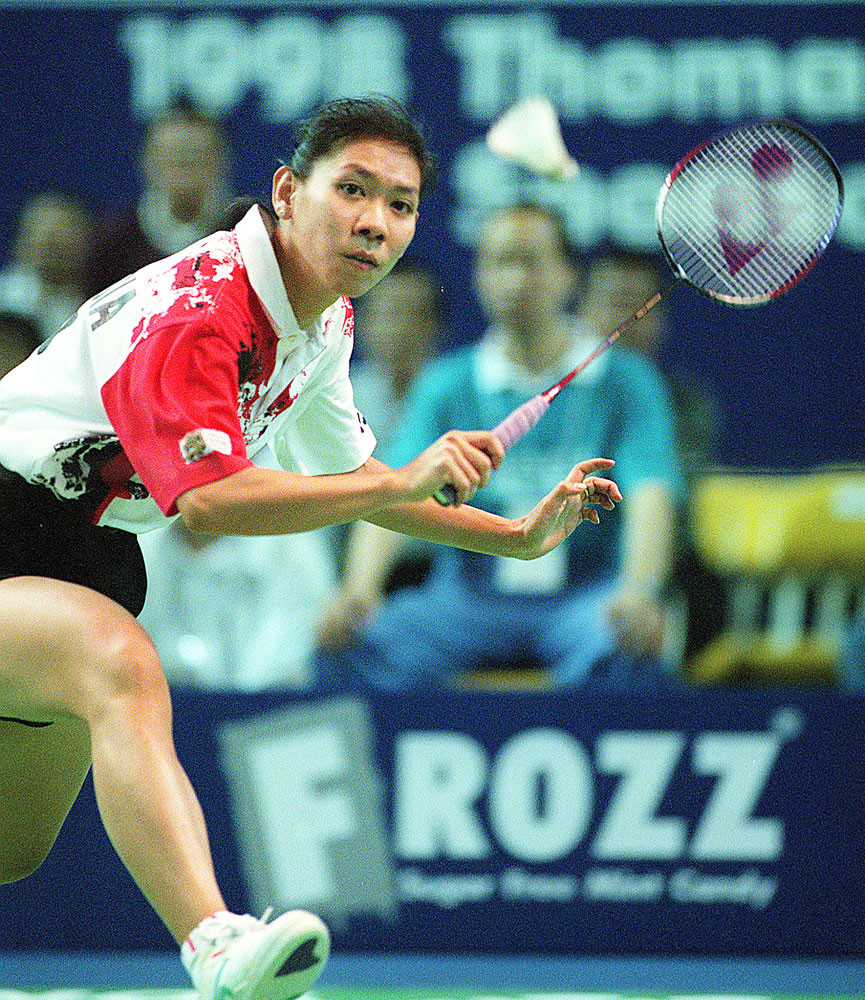Popular Reads
Top Results
Can't find what you're looking for?
View all search resultsPopular Reads
Top Results
Can't find what you're looking for?
View all search resultsToward more Susy Susantis
With the aforementioned female athletes already opening the path to global glory, Indonesian female athletes have an equal opportunity to follow in their footsteps. They have the potential. What they need is the opportunity.
Change text size
Gift Premium Articles
to Anyone
W
hen American tennis legend Billie Jean King challenged British player Bobbie Riggs in 1973 in the famous “Battle of the sexes”, people laughed and mocked her. But when she eventually won the match, they acknowledged her achievement.
Since then, King has been recognized as a tennis legend who served as an advocate for gender equality and a pioneer for equality and social justice. She also helped set up the Women’s Tennis Association and the Women’s Sports Foundation.
However, the path toward gender equality has not been smooth sailing. In the United States as well as other countries, female athletes still face discrimination.
The latest example was when the US women’s soccer team — which recently won its fourth Women’s World Cup title (including the first Women’s World Cup in 1991) and which has won four Olympic gold medals — decided to sue the US Soccer Federation for “institutional gender discrimination”.
The case is still ongoing in court.
Despite lagging 46 years behind US athletes, Indonesian female athletes can finally see a light at the end of the tunnel with the establishment of the Women in Sports Foundation by the Indonesian Olympic Committee (KOI).
Indonesia has inspiring women sports legends such as tennis player Yayuk Basuki, who peaked at No. 19 in the Women’s Tennis Association world rankings, archery trio Nurfitriyana Saiman Lantang, Lilies Handayani and Kusuma Wardhani, who brought home a silver medal from the 1988 Seoul Olympics, and of course the 1992 Barcelona Olympics badminton gold medalist Susy Susanti.
Yet female athletes still face tough challenges in juggling their sporting careers and their domestic tasks due to the country’s prevalent patriarchal culture.
Therefore, the recently established foundation should help raise awareness about women’s needs, in the hopes that eventually the country can speak volumes on the international stage.
KOI chairman Erick Thohir said during the launch of the foundation, “I hope we can carry on with the campaign so that equality is not just for politics and business but also for sports.” Several sports organizations in Indonesia, including badminton, soccer and sports climbing, have allocated funds to help develop and provide opportunities for female athletes.
With the aforementioned female athletes already opening the path to global glory, Indonesian female athletes have an equal opportunity to follow in their footsteps. They have the potential. What they need is the opportunity.
Families and the wider society have welcomed female athletes with rocketing careers, but with a condition — that they do not forget their “natural destiny” as women, wives and mothers.
It is time to remind their male athlete counterparts of their nature as men, husbands and fathers with an equal responsibility in raising a family and serving society in their respective careers, so that both female and male athletes can strive toward a greater performance on the global stage.










